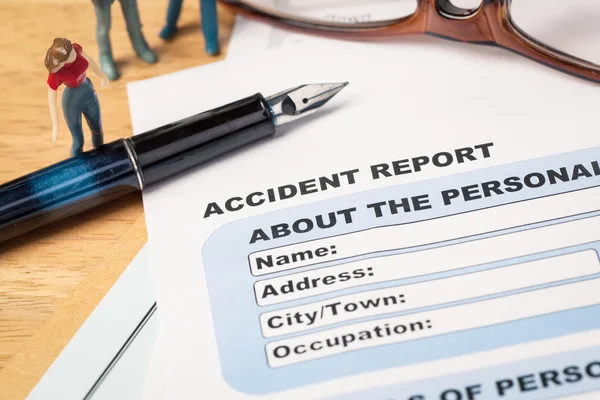Renting a car should be straightforward, but then the insurance conversation starts. The agent behind the counter rattles off acronyms like CDW, LDW, and SLI while you’re just trying to get your keys and hit the road. It’s like being asked to decode a secret language when all you want is to get on the road safely.
Rental insurance add-ons can quickly double your cost, but skipping them entirely might leave you vulnerable to hefty bills if something goes wrong. Understanding what each type of coverage protects you from makes the difference between smart spending and unnecessary panic purchases.
Here’s a breakdown of the main types of car rental insurance and what you need to consider for your specific situation.
Collision Damage Waiver

The Collision Damage Waiver covers damage to the rental car itself when you’re in an accident. Think of it as protection for the vehicle you’re renting rather than for other people or their property.
Most rental companies will charge you the full repair cost if their car gets damaged, and these bills can reach thousands of dollars even for minor fender benders. Your personal auto insurance might already cover rental cars, but this varies significantly between policies, and your deductible still applies.
Liability Coverage

Liability coverage protects you when you cause damage to other people’s property or injure someone in an accident. This is actually required by law in most states, so rental companies typically include basic liability coverage in their standard rental rates.
However, the minimum coverage amounts are often quite low compared to what you might need in a serious accident. If you have personal auto insurance, your liability coverage usually extends to rental cars automatically, though you should verify your specific policy limits.
Like Travel Pug’s content? Follow us on MSN.
Personal Accident Insurance

Personal Accident Insurance covers medical expenses and accidental death benefits for you and your passengers. It’s essentially a short-term life and medical insurance policy that kicks in if you’re injured in the rental car.
The coverage amounts are typically modest, often ranging from $10,000 to $175,000, depending on the rental company. Your existing health insurance and life insurance policies likely provide much better coverage than what rental companies offer, making this add-on usually poor value for money.
Personal Effects Coverage

This coverage protects your personal belongings if they’re stolen from the rental car or damaged in an accident. It’s similar to the coverage you might have on your homeowner’s or renter’s insurance policy, but with much lower limits.
Rental companies typically offer coverage between $500 and $1,500 for personal items. Your homeowner’s or renter’s insurance probably already covers personal property when you travel, including items stolen from rental cars, usually with higher limits and without daily fees.
Supplemental Liability Insurance

Supplemental Liability Insurance provides additional liability coverage beyond the basic amount included in your rental. This can be valuable if your personal auto insurance has low liability limits or if you don’t have car insurance at all. The additional coverage typically ranges from $300,000 to $1 million in combined coverage.
Consider this option if you have significant assets to protect and your personal liability limits are low, as serious accidents can result in damages that exceed basic coverage limits.
Like Travel Pug’s content? Follow us on MSN.
Credit Card Coverage

Many credit cards offer rental car insurance as a cardholder benefit, but the coverage details vary dramatically between cards. Some provide primary coverage that pays first when you have a claim, while others offer secondary coverage that only pays after your personal insurance.
The coverage typically applies only to damage to the rental vehicle, not liability or personal injury claims. Read your credit card benefits guide carefully to understand what’s actually covered and what requirements you must meet, as some cards require you to decline the rental company’s insurance to activate the benefit.
Your Personal Auto Policy

Your existing car insurance policy is often your best protection when renting vehicles. Most comprehensive auto policies extend coverage to rental cars automatically, including both collision and liability protection. The same deductibles and coverage limits that apply to your personal vehicle typically apply to rentals as well.
Contact your insurance company before traveling to confirm your rental car coverage details, as some policies have restrictions on rental duration, vehicle types, or geographic areas.
State Requirements

Different states have varying requirements for rental car insurance, and some have specific laws about what rental companies must provide. Florida, for example, requires rental companies to provide certain minimum coverage levels automatically, while California has specific disclosure requirements about insurance options and their costs.
Understanding your destination state’s requirements helps you avoid paying for coverage you don’t legally need. Some states also have different liability requirements for residents versus visitors, which can affect your coverage needs.
Like Travel Pug’s content? Follow us on MSN.
International Rentals

Renting cars in foreign countries creates additional insurance complications that don’t exist for domestic travel. Your U.S. auto insurance typically doesn’t cover international rentals, and credit card benefits may be limited or excluded entirely. Different countries also have varying liability requirements and legal systems for handling accidents.
Purchase comprehensive coverage from the rental company when driving internationally, as the potential costs of being underinsured far outweigh the premium expense, especially when navigating unfamiliar roads and legal systems.
Business Travel Considerations

Business travelers often have different insurance needs than leisure travelers, particularly regarding liability exposure and corporate policies. Many companies have specific requirements about what insurance employees must carry when renting vehicles for business purposes, and some corporate insurance policies provide coverage for rental cars, while others don’t.
Check with your employer’s risk management or travel department before your trip to understand company requirements and available coverage. Business travelers may also face higher liability exposure due to the nature of their work, making supplemental coverage more valuable.
High-Value Vehicle Rentals

Luxury and exotic car rentals require special consideration because standard insurance policies often have exclusions or limitations for high-value vehicles. The collision damage waiver becomes much more important when you’re driving a $100,000 sports car instead of a basic economy vehicle, as regular auto insurance policies may not cover vehicles above certain value thresholds.
Rental companies typically require comprehensive insurance coverage for premium vehicles and may not accept certain types of coverage that work fine for standard cars. The potential financial exposure is also much higher, making the insurance cost seem reasonable by comparison.
Like Travel Pug’s content? Follow us on MSN.
Age and Experience Factors

Younger drivers and those with limited driving experience face additional insurance considerations when renting vehicles. Many rental companies charge higher rates or require additional coverage for drivers under 25, and some insurance policies have age-related restrictions.
Credit card rental coverage may also have minimum age requirements for cardholders. Inexperienced drivers might benefit from more comprehensive coverage due to higher accident risk, even if the cost seems steep, as the financial consequences of an accident can be particularly devastating for younger people.
Seasonal and Location Risks

Certain destinations and travel seasons present higher risks that might justify additional insurance coverage. Mountain driving in winter, busy urban areas with high accident rates, and regions with severe weather all increase the likelihood of needing insurance coverage.
Tourist areas also tend to have higher crime rates that could affect personal property coverage decisions. Research your destination’s specific risks before deciding on coverage levels, as a beach vacation in Florida presents different risks than a skiing trip in Colorado.
Cost-Benefit Analysis

The key to smart rental car insurance decisions is comparing the cost of coverage against your potential financial exposure and existing protection. Add up the daily insurance fees for your entire rental period and compare that to your auto insurance deductible and coverage gaps.
Sometimes paying a higher deductible on your personal policy makes more sense than daily rental fees. Consider your overall financial situation when making coverage decisions, as someone with substantial savings might choose to self-insure against smaller risks, while someone living paycheck to paycheck might benefit from comprehensive coverage despite the higher cost.
Like Travel Pug’s content? Follow us on MSN.
Coverage That Actually Makes Sense Today

The smartest approach combines thorough preparation with realistic risk assessment. Know what your current insurance covers, understand the rental company’s options, and choose coverage that fills genuine gaps rather than duplicating existing protection.
Car rental insurance has evolved from a simple yes-or-no decision to a complex web of overlapping coverages, but understanding your existing coverage and carefully evaluating your specific needs helps you make informed decisions rather than panic purchases at the rental counter.
More from Travel Pug

- 20 Best Beach Towns in the Carolinas
- 13 Destinations Where Tourists Regularly Regret Their Trip
- 20 Things You Actually Get in First Class
- 20 Small Airports With Aviation Museums
- 20 Places in the U.S. That Are Perfect for a Reset Trip
Like Travel Pug’s content? Follow us on MSN.
